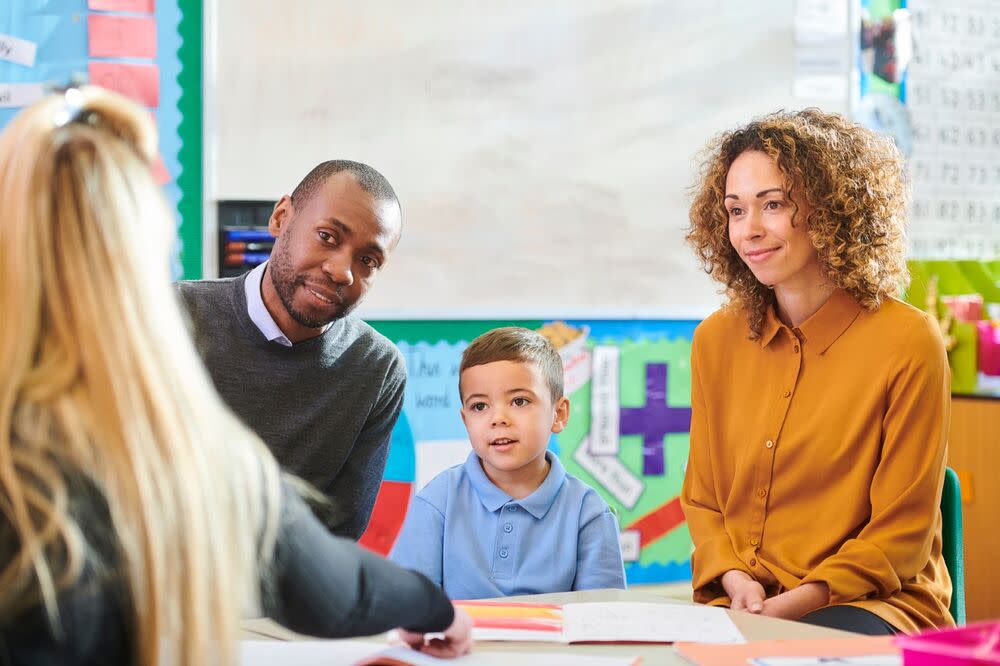4 Insights Parents Must Share During Parent-Teacher Conferences
Before you meet their teacher, read this.

Make the most of this fall’s parent-teacher conference.
Courtesy Future Ready Families
With the school year underway, parents and teachers alike face the ongoing challenges and uncertainties of the pandemic, a return to in-person learning, and how best to prepare our kids for an increasingly complex world. But despite the unknowns, we as parents and caregivers can move from a place of fear to one of purpose by preparing ourselves to act as engaged partners in our child’s education.
And there’s no better time to do that than before fall parent-teacher conferences. Teachers may be the experts when it comes to classroom learning, but we’re the experts on our kids, especially after having just spent so much time in a front-row seat to their remote learning. We know schools can do great things for our kids, but they can’t do it alone. Families have a critical role in helping schools support both learning and well-being—a role that’s even more important now as schools re-open and kids emerge from an unpredictable time.
To help families, the non-profit I lead launched FutureReadyFamilies.Org (powered by the Colorado Education Initiative), a robust website with proven tools, resources and strategies to empower parents and caregivers as advocates in their child’s education.
I was an early-in-life school system leader and a late-in-life mom, which means I’ve had a chance to reflect on all the ways we can improve how we build the connective tissue between schools and homes. With that insight, the Future Ready Families website arms families with bite-sized information and tools on how to best partner with teachers to ensure a pathway to success uniquely suited to your child and their needs.
In developing the early content, we partnered with Learning Heroes and Seek Common Ground to provide readiness resources in English and Spanish that help families get a sense of their child’s current learning level, better understand what’s ahead in their child’s school year, and have critical conversations with teachers.
For example, the Parent-Teacher Planning Tool can help you share important information about your child. If you haven’t already, then you’ll want to share the following four with your child’s teacher during your parent-teacher conference:
My child is doing well in…
My child needs help with…
My child is excited about…
Changes I’ve noticed in my child that are important for you to know…
In turn, ask them if they feel the same regarding these areas for your child. You can also look to the Parent-Teacher Planning Tool for guidance in how to find out what’s expected of your child so you can then form a plan to help at home. In my house, those guides have helped us figure out how to take the debates about “learning loss” and make sense of it for our own kids.
The need has never been greater for parents and families to serve as essential partners in student learning. Supporting your child’s education can be daunting, especially following the pandemic’s effects on schooling, but this is a great place to start.
Rebecca Holmes is the mother of two young children, a former middle school teacher and Associate Commissioner at the Colorado Department of Education and is the CEO of the Colorado Education Initiative, a regional nonprofit serving visionary schools and districts.
